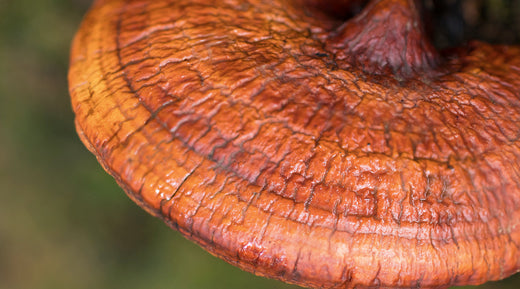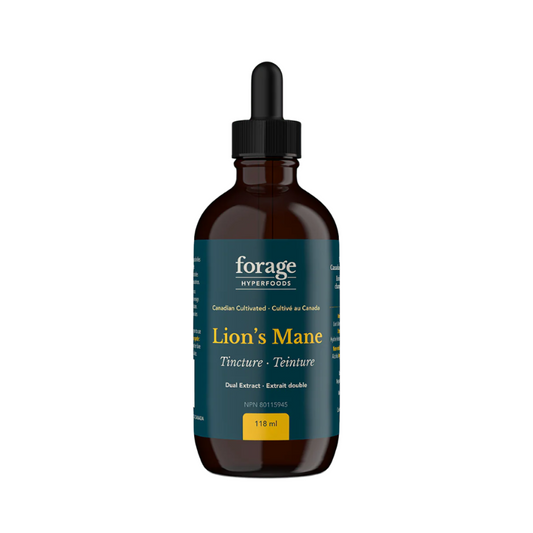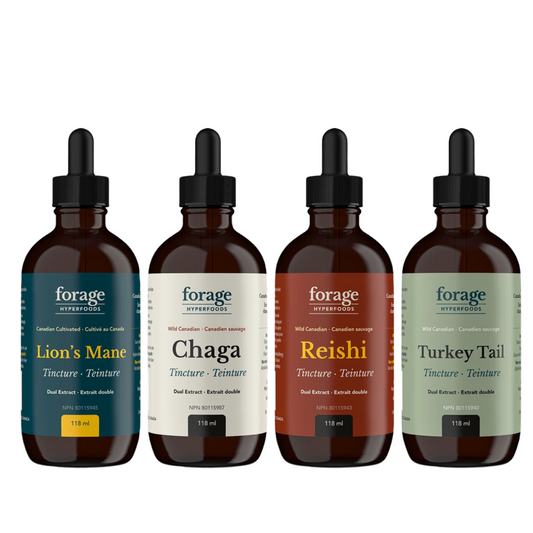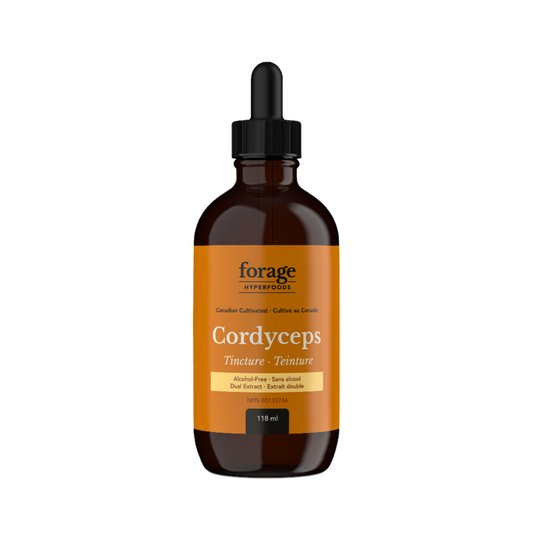
The History and Benefits of Reishi
Share
Reishi mushroom is one of the most widely-known and best-studied medicinal mushrooms. Called lingzhi (the divine mushroom) in China and mannetake (the mushroom of immortality) in Japan, Reishi has long been prized for its powerful medicinal properties.
How was Reishi first discovered, and does it live up to its reputation? Let’s find out.
What is Reishi mushroom?
Originally found in China, Japan, and Korea, Reishi is a type of shelf mushroom that grows on hardwood trees in tropical and subtropical climates throughout the world. There are about 80 different species of Reishi mushrooms, the most common of which is Ganoderma lucidum.
Reishi mushrooms have a unique red or brown fan-shaped cap, making them easily identifiable. Most Reishi sold today is cultivated commercially but is found abundantly in the wild in North America.
A brief history of Reishi
Asian cultures have used Reishi in medicine for thousands of years. Chinese healers first mentioned it in texts over 2,000 years ago and referred to the mushroom as an “elixir of immortality.” One such text is Classics of the Materia Medica, written in the Eastern Han dynasty sometime between 25 and 220AD. In addition to these texts, Reishi has been found in ancient artworks related to Taoism.
Healers believed that the Reishi had powerful anti-aging properties, and it was often used as a talisman of luck, healing, and wellness in Chinese culture.
Before people began cultivating and growing it, access to Reishi was mostly limited to Chinese nobility. Its rarity in the wild made it a prized commodity, giving it a price point only the wealthy could afford. As Reishi became more available, many people across Asia adopted it as a wellness staple.
Today, Reishi is still commonly used in medicine across Asia. In fact, it’s listed in the State Pharmacopoeia of the People’s Republic of China as a remedy for several conditions.
The health benefits of Reishi
While no substance can grant you immortality, Reishi possesses health-promoting properties that may extend your lifespan. Here are some of the top purported benefits that have earned Reishi its “mushroom of immortality” moniker:
- Supports the immune system: Reishi’s main claim to fame is its ability to regulate the immune system. Studies show that Reishi acts as an immunomodulator, helping to boost an underactive immune system and down-regulate an overactive immune system.[*]
- Helps the body adapt to stress: Reishi mushrooms are adaptogens—plants that help the body combat stress. Some studies have shown that Reishi mushroom may decrease feelings of irritability, stress, depression, and anxiety.[*][*]
- Promotes cardiovascular health: Some research suggests that Reishi may increase “good” HDL cholesterol and decrease triglycerides. However, more research is needed in this area.
-
Improves sleep: Reishi contains a beneficial compound called triterpenes, which appear to have a sedating effect.[*] As such, taking Reishi may make it easier to fall asleep and stay asleep.
A final word
Reishi has a long history of use in medicine, and now modern research is confirming its healing power. With all the potential benefits of this mushroom and little to no side effects, it’s certainly worth trying with a healthy lifestyle. You might find that it helps you break through physical and mental health barriers, allowing you to reach your full potential.
At Forage Hyperfoods, we offer a dual-extracted, 100% wild Canadian Reishi tincture (original or alcohol-free), making it easier to get a daily dose of the mushroom of immortality.



